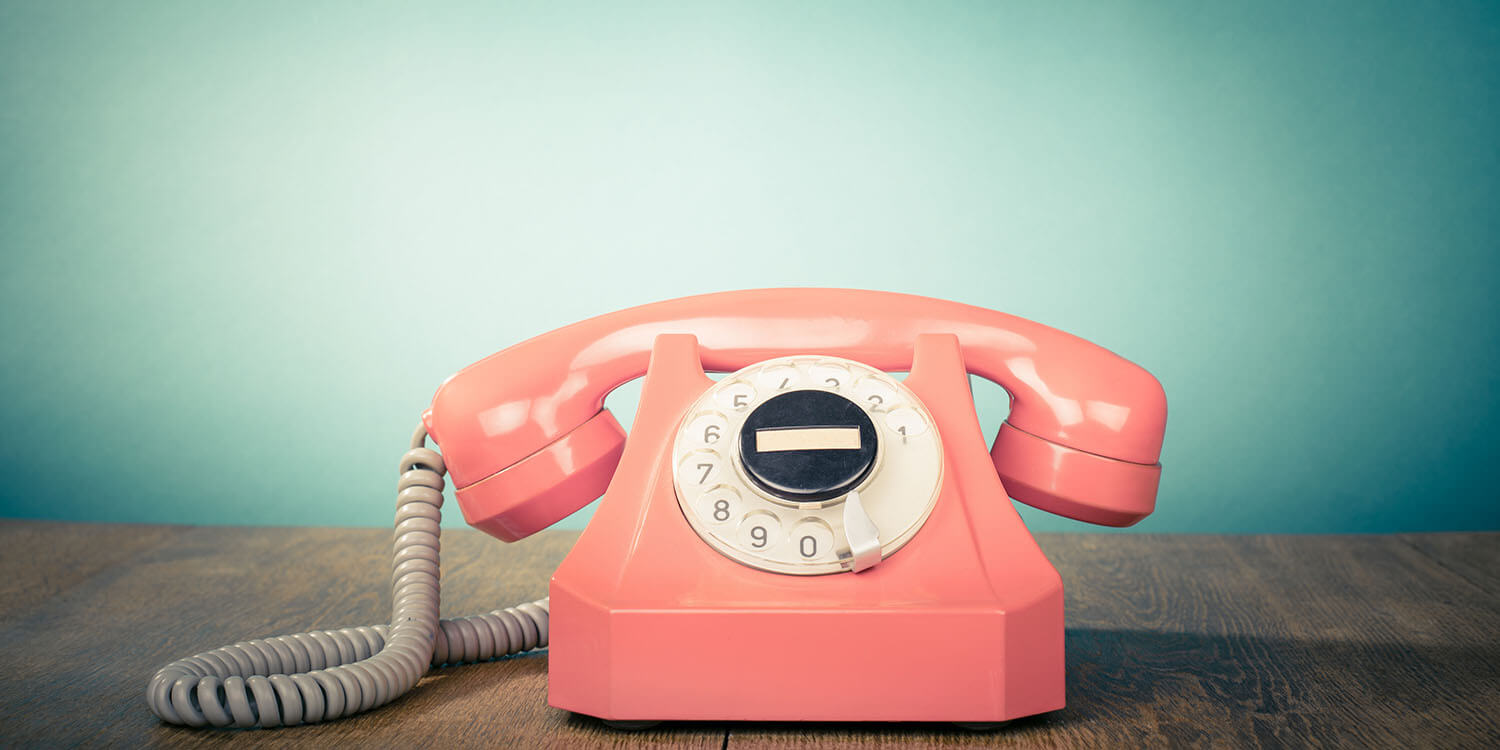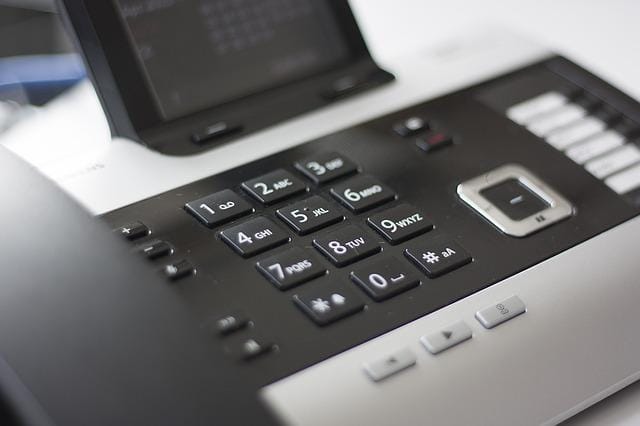All Categories
Featured
Table of Contents
- – What Is The Best The Best Answering Service For...
- – What Was The Most Popular Call Answering Servi...
- – What Is The Best Call Answering Service Out Today
- – Best Phone Answering - Serviced & Virtual Off...
- – Best 9 Best Answering Service Providers For 2...
- – Best What Is An Answering Service? - Ruby Bl...
What Is The Best The Best Answering Service For Clinics Product?
This device and its followers were designed by Sava Jacobson, an electrical engineer with a personal consulting service. While early voice mail used magnetic tape innovation, a lot of contemporary equipment utilizes solid state memory storage; some devices use a mix of both, with a solid-state circuit for the outbound message and a cassette for the incoming messages.
"toll saving" below) (business call answering service). This is useful if the owner is evaluating calls and does not wish to speak to all callers. In any case after going, the calling party ought to be notified about the call having been responded to (most of the times this starts the charging), either by some remark of the operator, or by some greeting message of the little, or dealt with to non-human callers (e.
This holds specifically for the Little bits with digitally saved greeting messages or for earlier makers (prior to the rise of microcassettes) with an unique unlimited loop tape, different from a second cassette, devoted to recording. There have been answer-only devices with no recording abilities, where the welcoming message had to notify callers of a state of current unattainability, or e (virtual telephone answering).
What Was The Most Popular Call Answering Service For Small Business In Brisbane?

about accessibility hours. In taping TADs the greeting normally includes an invitation to leave a message "after the beep". An answering machine that utilizes a microcassette to tape-record messages On a dual-cassette answerphone, there is an outgoing cassette, which after the specified variety of rings plays a pre-recorded message to the caller.

Single-cassette answering makers include the outgoing message at the start of the tape and incoming messages on the staying area. They first play the announcement, then fast-forward to the next available space for recording, then record the caller's message. If there are numerous previous messages, fast-forwarding through them can trigger a considerable delay.
This beep is frequently referred to in the greeting message, asking for that the caller leave a message "after the beep". TADs with digital storage for the taped messages do not reveal this delay, obviously. A little may provide a push-button control facility, whereby the answerphone owner can sound the house number and, by going into a code on the remote telephone's keypad, can listen to recorded messages, or erase them, even when away from house.
What Is The Best Call Answering Service Out Today

Consequently the machine increases the variety of rings after which it addresses the call (generally by two, resulting in 4 rings), if no unread messages are presently saved, however responses after the set number of rings (typically 2) if there are unread messages. This allows the owner to discover out whether there are messages waiting; if there are none, the owner can hang up the phone on the, e.
Some machines also enable themselves to be remotely activated, if they have actually been switched off, by calling and letting the phone ring a certain a great deal of times (generally 10-15). Some provider desert calls already after a smaller sized variety of rings, making remote activation difficult. In the early days of Littles a special transmitter for DTMF tones (dual-tone multi-frequency signalling) was regionally needed for push-button control, because the formerly used pulse dialling is not apt to communicate suitable signalling along an active connection, and the dual-tone multi-frequency signalling was implemented step-by-step.
Any incoming call is not identifiable with respect to these properties in advance of going "off hook" by the terminal equipment. So after going off hook the calls need to be switched to proper gadgets and just the voice-type is immediately accessible to a human, however possibly, nonetheless must be routed to a LITTLE BIT (e.
Best Phone Answering - Serviced & Virtual Offices & Admin ... Shop Near Me
What if I told you that you do not have to actually get your gadget when answering a consumer call? Somebody else will. So convenient, ideal? Answering call does not require somebody to be on the other end of the line. Effective automated phone systems can do the trick just as effectively as a live representative and often even much better.
An automated answering service or interactive voice reaction system is a phone system that communicates with callers without a live individual on the line - business call answering service. When business utilize this technology, consumers can get the response to a question about your organization merely by utilizing interactions established on a pre-programmed call circulation.
Although live operators update the client service experience, numerous calls do not need human interaction. An easy documented message or instructions on how a customer can retrieve a piece of information normally solves a caller's immediate requirement - reception services. Automated answering services are a basic and reliable method to direct inbound calls to the ideal person.
Best 9 Best Answering Service Providers For 2023 [Reviewed] Showroom Near Me
Notification that when you call a business, either for support or product inquiry, the first thing you will hear is a pre-recorded voice welcoming and a series of alternatives like press 1 for customer care, press 2 for queries, and so on. The pre-recorded options branch off to other options depending upon the customer's selection.
The phone tree system assists direct callers to the ideal individual or department utilizing the keypad on a smart phone. In some circumstances, callers can use their voices. It deserves noting that auto-attendant alternatives aren't limited to the 10 numbers on a phone's keypad. Once the caller has picked their very first choice, you can create a multi-level auto-attendant that uses sub-menus to direct the caller to the right kind of assistance.
The caller does not have to interact with an individual if the auto-attendant phone system can handle their issue. The automatic service can route callers to a staff member if they reach a "dead end" and require support from a live representative. It is costly to employ an operator or executive assistant.
Best What Is An Answering Service? - Ruby Blog Prices Near Me
Automated answering services, on the other hand, are substantially more economical and provide considerable expense savings at an average of $200-$420/month. Even if you don't have actually dedicated staff to manage call routing and management, an automatic answering service improves efficiency by permitting your group to focus on their strengths so they can more effectively spend their time on the phone.
A sales lead routed to client service is a lost shot. If a customer who has item questions reaches the incorrect department or receives insufficient answers from well-meaning workers who are less trained to handle a specific type of concern, it can be a reason for frustration and dissatisfaction. An automated answering system can decrease the variety of misrouted calls, therefore helping your employees make much better use of their phone time while maximizing time in their calendar for other jobs.
With Automated Answering Systems, you can develop a customized experience for both your personnel and your callers. Make a recording of your primary welcoming, and simply upgrade it regularly to reflect what is going on in your organization. You can produce as numerous departments or menu choices as you desire.
Table of Contents
- – What Is The Best The Best Answering Service For...
- – What Was The Most Popular Call Answering Servi...
- – What Is The Best Call Answering Service Out Today
- – Best Phone Answering - Serviced & Virtual Off...
- – Best 9 Best Answering Service Providers For 2...
- – Best What Is An Answering Service? - Ruby Bl...
Latest Posts
Top Real Estate Answering Service Near Me – QLD
Specialist Medical Answering Service ( Melbourne 3008)
Temporary Answering Service
More
Latest Posts
Top Real Estate Answering Service Near Me – QLD
Specialist Medical Answering Service ( Melbourne 3008)
Temporary Answering Service